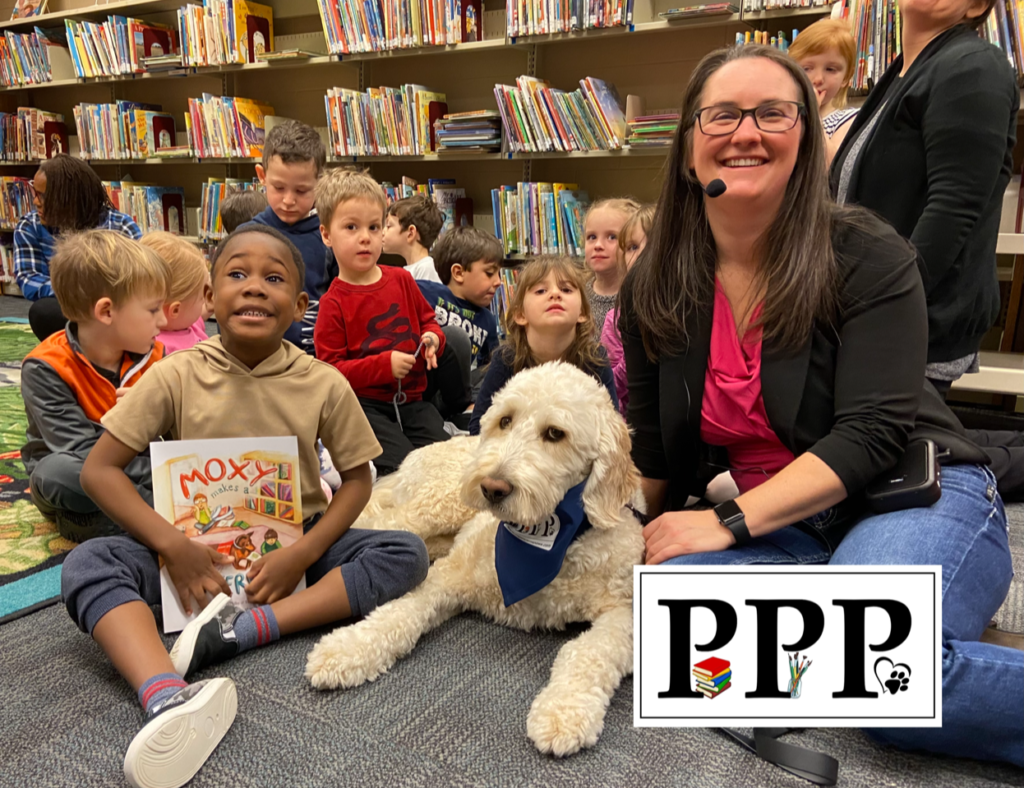Squeals of delight and melodic laughter drift down the hallway of the school where a mom of three drops off her son after a doctors appointment. “What is happening down there?” She asks. The receptionist smiles and replies, “That’s our new literacy program in the library with Mrs. Smith’s Grade 1 class.” The mom stares as a big cheer erupts from that direction, “That sounds like a lot more fun than just reading books!” The receptionist grins, “It is, they bring animals!”
It has long been proven by the medical community that interacting with a therapy animal can have a positive effect on your physical, mental, social, and emotional health. And while animal therapy is not new, the understanding of what its true impact can be is only now being fully investigated. You won’t have a hard time convincing people that petting a dog can brighten your day, but what about enhanced learning capabilities and better memory retention? Studies show that combining education with the positive effects of a therapy animal can not only boost a child’s learning but also change it from an undesirable task to an enjoyable one.
We know that stress can have a negative impact on learning ability. The scientific evidence can be difficult to understand as it points to both reduced and heightened learning abilities under stress. However, when you consider that stress in a fight or flight situation increases our ability to survive, short term or long-term stress in a normal learning environment does not carry the same life or death stakes. Stress in a normal learning situation can impair memory, concentration, perception, planning, and the ability to pay attention to details. Studies show that having a trained therapy animal can lower stress, anxiety, blood pressure, and heart rate while boosting our feel-good hormones, confidence, and motivation. The same was not shown when the experiment was conducted with a teacher, a friend, or a loved adult. Despite our best intentions to provide the same support, humans do not have the same ability to connect and impact as trained therapy animal can.
A teacher will inevitably carry both supportive and judgmental connotations for students as the determiner of their level of success, while a therapy animal is generally viewed as non-judgmental. This creates a safe learning environment where children can feel free to make mistakes as part of the normal learning process without fear of disappointing their captive audience. There is also a high motivation factor that comes from getting to work with an animal outside of what can sometimes be a tough and restrictive environment for many children. Children delight in being able to share a new story that their animal partner will enjoy or use literacy games built to work directly with the therapy animal.
Using animal therapy as a motivational tool enhances the “fun-factor” and can change the way a child views a task that is hard. It can positively influence the likelihood that they will return to that same activity for enjoyment in the future. We know that literacy is a predictor of success in life. Using an animal assisted literacy program could be just the tool you need to help your child improve their experience and set them on a path to success.
Article by Nicole Selby:
Nicole Selby is the founder of Pages, Pens, & Paws, a children’s literacy foundation that focuses on the importance of literacy through the connections of animal-assisted therapy with specially crafted books, content, events, and literacy programs. Nicole has spent the last 25 years in the animal therapy industry experiencing first-hand the benefits of these programs while also working as a paramedic, raising a family, writing two books, and facilitating the first Paramedic K9 Unit in North America. Nicole likes to relax at home with her family and pets: a cat named Daisy; a hound named Lucky; a weimaraner named Mika; a horse named Woody; and her work partner Tanner, a 2yr old goldendoodle.
Social Media:
@pages.pens.paws
@author.nicoleselby
@k9.medic.cp
Pages, Pens, & Paws

References:
Exploring Animal-Assisted Programs with Children in School and Therapeutic Contexts
Understanding the role of fun in learning to code
Exploring Animal-Assisted Therapy as a Reading Intervention Strategy







